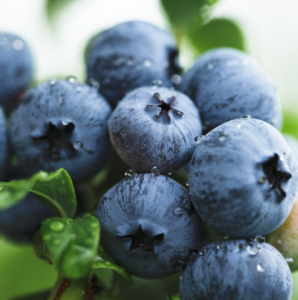Canada: Increasing bee populations and blueberry yields
Syngenta Canada Inc. and Dalhousie University, together with the Natural Sciences and Engineering Research Council of Canada, are partnering on an innovative research project to increase bee populations and blueberry yields in the Maritime Provinces.
Canada is the world’s largest producer of wild blueberries and most are grown in Quebec and in the Atlantic provinces. They are important economically and are part of our cultural identity.
“An increase in the demand for blueberries has resulted in the expansion of blueberry operations. Bee populations have not, however, increased in tandem,” Dr. Paul Hoekstra, stewardship manager with Syngenta Canada Inc., said in a news release on Thursday.
Bees and blueberries are an important combination and over the past two years declines in blueberry yields have caused concerns.
“An inadequate supply of bees required to pollinate a healthy blueberry crop has been identified as an important problem,” said Dr. Chris Cutler, an associate professor of agriculture at Dalhousie University, Faculty of Agriculture. “This research project hopes to address a couple of the factors that may be part of the problem – nesting habitat limitations and a lack of food resources.”
The research will involve planting of bee-attractive forage plants and creation of bee nesting sites. Impacts of these habitat amendments on bee populations and blueberry pollination will be analyzed over two years.
“We’re planting annual buckwheat, which is particularly attractive to bees, along the edge of blueberry fields,” explains researcher Robyn McCallum. “We’re also examining the use of nesting blocks that can be used by certain cavity nesting bees, and how nesting block design, placement, and management affects the number of bees in a field and, as a result, pollination rates.”
Originally from Tabusintac, N.B., the Dalhousie master of science student is hopeful that the blueberry sector will benefit from her research.
“We think the research will demonstrate the benefits of these practical methods to boost native bee populations,” said McCallum.
Syngenta Canada is supporting the research through their Operation Pollinator program. The program includes support for research and other initiatives that contribute to enhanced biodiversity and habitat in support of healthy pollinator populations.
“Increasing numbers of natural pollinators has been shown to increase yield and quality in key agricultural crops,” says Dr. Hoekstra. “We are pleased to support Robyn’s research and we look forward to seeing the results of this work,” adds Hoekstra, noting that, “at least one third of the human food supply from crops and plants depends on insect pollination, most of which is done by bees. So, we all have a shared interest in bee health.”
www.cumberlandnewsnow.com






